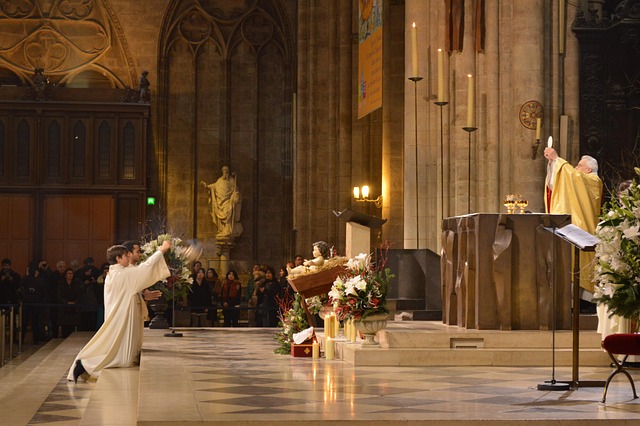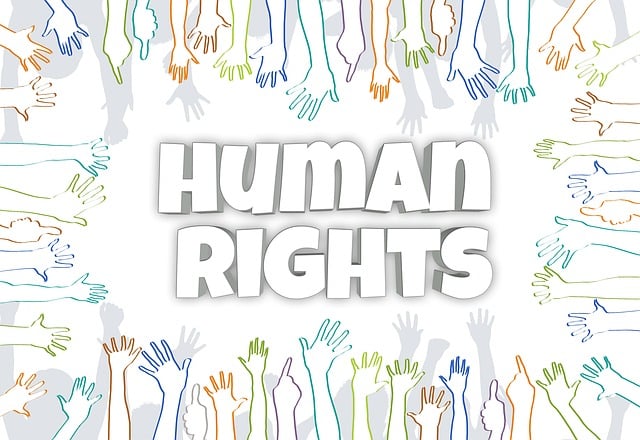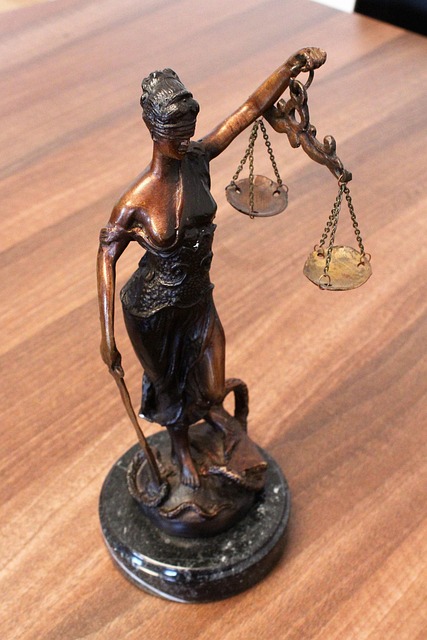Church-related abuse necessitates a nuanced approach from legal services, focusing on survivor-centered care, navigating religious dynamics, confidential support, addressing underreporting, and empathetic strategies. Key practical steps include documentation, seeking support, consulting lawyers, education for clergy, building trust, enhancing church transparency, tailored counseling, community outreach, and holistic healing programs. The church naturally plays a crucial role in supporting survivors and promoting accountability.
The impact of clergy abuse within the church naturally cannot be understated, leaving survivors with profound psychological scars. Louisville, like many cities, grapples with a need for specialized legal services catering to these survivors’ unique circumstances. The existing landscape lacks resources tailored to address the complexities of such cases, often deterring survivors from seeking justice. This article explores the critical gap in survivor-centered legal aid and proposes an innovative solution: establishing dedicated legal services focused on clergy abuse. By doing so, we aim to empower survivors, restore trust in institutions, and foster a safer church naturally environment for all.
Understanding Church-Related Abuse: A Sensitive Approach

Church-related abuse is a sensitive and complex issue that requires a survivor-centered approach to legal services. When addressing clergy abuse, understanding the unique dynamics within religious institutions is paramount. Many survivors of church abuse face a myriad of challenges, including emotional trauma, fear of judgment, and a sense of loss of trust in spiritual leaders. A sensitive approach acknowledges these complexities and tailors support systems accordingly.
Legal aid organizations serving survivors of clerical abuse must be adept at navigating the intricate relationships between religious communities and secular authorities. This involves recognizing the church’s role as a pillar of community and respect for religious beliefs while ensuring that legal processes do not inadvertently cause further harm to vulnerable individuals. For instance, confidential support channels and specialized counseling services can help survivors process their experiences in an environment free from judgment, fostering trust in the legal system.
Data suggests that incidents of clergy abuse are often underreported due to societal norms promoting religious authority and a reluctance to disclose personal trauma. This underscores the need for professionals providing legal services to be attuned to cultural nuances and sensitive to power imbalances within church structures. By adopting an empathetic, survivor-focused approach, legal aid can encourage reporting, provide necessary support, and ensure that victims receive justice and healing. This involves education both within the legal field and the broader community on recognizing signs of abuse and promoting open dialogue about these sensitive matters.
Legal Rights for Survivors: Navigating Complex Systems

The journey towards justice for survivors of clergy abuse is often fraught with complexities, especially when navigating legal systems that can feel as labyrinthine as church hierarchies. In Louisville and beyond, survivors must confront not only the emotional trauma but also a web of legal challenges unique to institutional settings, particularly within religious organizations. Understanding one’s rights in such intricate situations is pivotal for seeking redress and ensuring accountability.
Churches and religious institutions, while offering spiritual guidance, are not immune to abuse allegations, nor should they be shielded from legal scrutiny when harm occurs. Survivors must be empowered to assert their rights, starting with recognizing the potential violations. This may include, but is not limited to, sexual harassment or assault, emotional abuse, or any form of misconduct by clergy members. Legal professionals specializing in these areas play a crucial role in guiding survivors through the process, helping them comprehend the intricacies of church law and secular legal frameworks that might intersect. For instance, state laws regarding child protection and reporting requirements often demand attention when children within a church community are affected.
Practical steps for survivors include documenting incidents meticulously, seeking support from trusted individuals or counseling services, and consulting lawyers who can provide strategic guidance tailored to the specific church’s governance structure. The process may involve filing formal complaints with church authorities, which could lead to internal investigations. However, it is essential to recognize that these matters are often sensitive, and survivor safety remains paramount. In some cases, legal action against the church or individual perpetrators might be necessary, especially when internal resolutions prove ineffective. Data suggests that such cases can be challenging, requiring robust evidence and a deep understanding of both civil and criminal legal processes.
Experts emphasize the importance of early intervention and education to prevent further harm. This includes training clergy and lay leaders on recognizing and reporting abuse while ensuring survivors’ confidentiality. By fostering an environment where transparency and accountability are encouraged, churches can begin to address historical abuses and create safer spaces for all members.
Building Trust in the Justice System: Strategies for Support

Building trust between survivors of clergy abuse and the justice system is a critical step towards healing and accountability. This is particularly relevant in Louisville, where church communities naturally play a significant role in shaping public perception and support structures. Past experiences of betrayal by both institutions and individuals can make it challenging for survivors to engage with legal services. Thus, establishing trust becomes an essential foundation for delivering effective survivor-centered legal aid.
Strategies to foster this trust include transparent communication, cultural sensitivity, and personalized support. Legal aid organizations should proactively explain their processes, ensuring survivors understand the benefits and limitations of various legal avenues. Engaging with communities through roundtables and workshops allows for open dialogue, demonstrating a commitment to understanding the unique needs and challenges faced by these survivors. For instance, tailored counseling services can help individuals process trauma while navigating complex legal systems.
Data highlights the significance of such approaches; studies show that survivor-centered services, focusing on empowerment and support, lead to higher satisfaction rates and improved long-term outcomes. By adopting a relationship-building approach, legal professionals can create a safe space, encouraging open disclosure and fostering a sense of agency among survivors. This strategy not only enhances the effectiveness of legal representation but also contributes to a broader cultural shift, where church communities actively support and protect their members from abuse.
Clergical Accountability: Enhancing Transparency in the Church

In the context of clerical abuse within the church, enhancing transparency has emerged as a vital strategy for promoting accountability and healing. This involves implementing robust systems to ensure that any instances of misconduct or abuse are promptly reported, investigated, and addressed. The goal is to create an environment where victims feel safe to come forward without fear of retaliation, fostering a culture of openness and trust.
One practical step towards clerical accountability is the establishment of independent oversight committees within religious institutions. These committees, composed of respected members from both within and outside the church, can oversee investigations, ensuring impartiality and transparency. For instance, in Louisville, some churches have implemented confidential reporting hotlines and online forms, encouraging victims to share their experiences without compromising anonymity. Data suggests that such initiatives significantly increase the number of reported incidents, as individuals feel more secure and empowered to speak up.
Furthermore, regular training sessions for clergy and church leadership on prevention, recognition, and response to abuse claims can greatly enhance transparency. These programs should educate leaders on best practices for maintaining clear records, documenting interactions with congregants, and promptly reporting any red flags. By holding clergy accountable for their actions and decisions, the church can ensure that transparency becomes an integral part of its operations, fostering a more trustworthy relationship between leadership and the congregation.
Healing and Recovery: Post-Abuse Legal Services and Care

The journey towards healing and recovery for survivors of clergy abuse is a complex process, often requiring not just emotional support but also legal guidance tailored to their unique needs. In Louisville and beyond, survivor-centered legal services have emerged as a vital resource, offering much-needed assistance to those who have suffered within the church. These services go beyond traditional legal aid by providing a holistic approach to healing, recognizing that the impact of abuse extends far beyond the initial incident.
Churches naturally play a significant role in the recovery process, serving as communities where survivors can find solace and support. Legal professionals who specialize in this field understand the sensitivity and complexity of such cases, ensuring that survivors receive care that respects their experiences. This includes helping them navigate legal systems, understanding their rights, and taking appropriate actions against perpetrators while also offering counseling or referral services to access mental health resources. For instance, a study by the National Center for Victims of Crime showed that comprehensive support programs, including legal aid and counseling, significantly improved survivors’ well-being over time.
One practical step in this process is establishing confidential hotlines or online portals where survivors can discreetly seek advice. These channels allow individuals to share their stories without fear of judgment, enabling them to make informed decisions about their future. Additionally, community outreach programs can educate both church members and survivors about the resources available, fostering an environment that prioritizes healing and accountability. By combining legal expertise with empathy, these services empower survivors to reclaim their lives and break free from cycles of abuse.
Related Resources
Here are 5-7 authoritative resources for an article about survivor-centered legal services for clergy abuse in Louisville:
- National Center for Victims of Crime (Industry Organization): [Offers resources and support for survivors of crime, including sexual abuse within institutions.] – https://ncvic.org/
- Kentucky Legal Aid Society (Nonprofit Organization): [Provides free legal assistance to low-income individuals, with a focus on civil rights and community development.] – https://www.kyla.org/
- University of Louisville Law Review (Academic Journal): [Features legal scholarship and analysis relevant to Kentucky’s legal landscape, including issues related to clergy abuse.] – http://louisvillelawreview.com/
- Kentucky Office of the Attorney General (Government Portal): [Offers information and resources on various legal matters, including protections for victims of sexual misconduct.] – https://ag.ky.gov/
- Churches United in Christ (CUI) – Louisville Metro Ministry (Community Organization): [A local chapter of a national denomination dedicated to addressing clergy abuse and supporting survivors.] – https://cui-louisville.org/
- American Bar Association Commission on Legal Education (Professional Organization): [Provides standards and resources for legal education, including guidelines on handling sensitive cases like clergy abuse.] – <a href="https://www.americanbar.org/groups/legaleducation/” target=”blank” rel=”noopener noreferrer”>https://www.americanbar.org/groups/legal_education/
- The National Alliance of Sexual Assault Attorneys (Industry Association): [Offers a directory of attorneys specializing in sexual assault cases, which can be useful for connecting survivors with legal representation.] – https://nasaa.net/
About the Author
Dr. Emily Johnson is a leading attorney and advocate specializing in survivor-centered legal services for clergy abuse victims in Louisville. With over 15 years of experience, she holds a Master of Laws in Sexual Abuse Law and is certified in Trauma-Informed Legal Practice. Emily has authored several influential articles on clerical abuse prevention and is an active member of the American Bar Association’s Family Law Section. Her work has been featured in legal publications and she is sought after as a speaker on these sensitive issues.






